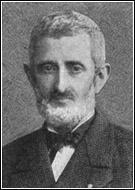
Creationism is the religious belief that nature, and aspects such as the universe, Earth, life, and humans, originated with supernatural acts of divine creation. In its broadest sense, creationism includes a continuum of religious views, which vary in their acceptance or rejection of scientific explanations such as evolution that describe the origin and development of natural phenomena.

Intelligent design (ID) is a pseudoscientific argument for the existence of God, presented by its proponents as "an evidence-based scientific theory about life's origins". Proponents claim that "certain features of the universe and of living things are best explained by an intelligent cause, not an undirected process such as natural selection." ID is a form of creationism that lacks empirical support and offers no testable or tenable hypotheses, and is therefore not science. The leading proponents of ID are associated with the Discovery Institute, a Christian, politically conservative think tank based in the United States.

Michael Joseph Behe is an American biochemist and an advocate of the pseudoscientific principle of intelligent design (ID). He serves as professor of biochemistry at Lehigh University in Pennsylvania and as a senior fellow of the Discovery Institute's Center for Science and Culture. Behe advocates for the validity of the argument for irreducible complexity (IC), which claims that some biochemical structures are too complex to be explained by known evolutionary mechanisms and are therefore probably the result of intelligent design. Behe has testified in several court cases related to intelligent design, including the court case Kitzmiller v. Dover Area School District where his views were cited in the ruling that intelligent design is not science and is religious in nature.

Recurring cultural, political, and theological rejection of evolution by religious groups exists regarding the origins of the Earth, of humanity, and of other life. In accordance with creationism, species were once widely believed to be fixed products of divine creation, but since the mid-19th century, evolution by natural selection has been established by the scientific community as an empirical scientific fact.

The intelligent design movement is a neo-creationist religious campaign for broad social, academic and political change to promote and support the pseudoscientific idea of intelligent design (ID), which asserts that "certain features of the universe and of living things are best explained by an intelligent cause, not an undirected process such as natural selection." Its chief activities are a campaign to promote public awareness of this concept, the lobbying of policymakers to include its teaching in high school science classes, and legal action, either to defend such teaching or to remove barriers otherwise preventing it. The movement arose out of the creation science movement in the United States, and is driven by a small group of proponents.

The Wedge Strategy is a creationist political and social action plan authored by the Discovery Institute, the hub of the pseudoscientific intelligent design movement. The strategy was put forth in a Discovery Institute manifesto known as the Wedge Document. Its goal is to change American culture by shaping public policy to reflect politically conservative fundamentalist evangelical Protestant values. The wedge metaphor is attributed to Phillip E. Johnson and depicts a metal wedge splitting a log.

Of Pandas and People: The Central Question of Biological Origins is a controversial 1989 school-level supplementary textbook written by Percival Davis and Dean H. Kenyon, edited by Charles Thaxton and published by the Texas-based Foundation for Thought and Ethics (FTE). The textbook endorses the pseudoscientific concept of intelligent design – the argument that life shows evidence of being designed by an intelligent agent which is not named specifically in the book, although proponents understand that it refers to the Christian God. The overview chapter was written by young Earth creationist Nancy Pearcey. They present various polemical arguments against the scientific theory of evolution. Before publication, early drafts used cognates of "creationist". After the Edwards v. Aguillard Supreme Court ruling that creationism is religion and not science, these were changed to refer to "intelligent design". The second edition published in 1993 included a contribution written by Michael Behe.

The "teach the controversy" campaign of the Discovery Institute seeks to promote the pseudoscientific principle of intelligent design as part of its attempts to discredit the teaching of evolution in United States public high school science courses. Scientific organizations point out that the institute claims that there is a scientific controversy where in fact none exists.

An intelligent designer, also referred to as an intelligent agent, is the hypothetical willed and self-aware entity that the intelligent design movement argues had some role in the origin and/or development of life. The term "intelligent cause" is also used, implying their teleological supposition of direction and purpose in features of the universe and of living things.

Jewish views on evolution includes a continuum of views about the theory of evolution, experimental evolution, the origin of life, age of the universe, evolutionary creationism, and theistic evolution. Today, many Jewish people accept the theory of evolution and do not see it as incompatible with traditional Judaism, reflecting the emphasis of prominent rabbis such as the Vilna Gaon and Maimonides on the ethical rather than factual significance of scripture.

Natan Slifkin, popularly known as the "Zoo Rabbi," is a British-born Israeli Modern Orthodox community rabbi and the director of the Biblical Museum of Natural History in Beit Shemesh, Israel. Slifkin is best known for his interests in zoology, Judaism's relationship to evolution, Jewish and biblical history, and his writing on these topics.

Kitzmiller v. Dover Area School District, 400 F. Supp. 2d 707 was the first direct challenge brought in the United States federal courts testing a public school district policy that required the teaching of intelligent design (ID), ultimately found by the court to not be science. In October 2004, the Dover Area School District of York County, Pennsylvania, changed its biology teaching curriculum to require that intelligent design be presented as an alternative to evolution theory, and that Of Pandas and People, a textbook advocating intelligent design, was to be used as a reference book. The prominence of this textbook during the trial was such that the case is sometimes referred to as the Dover Panda Trial, a name which recalls the popular name of the Scopes Monkey Trial in Tennessee, 80 years earlier. The plaintiffs successfully argued that intelligent design is a form of creationism, and that the school board policy violated the Establishment Clause of the First Amendment to the United States Constitution. The judge's decision sparked considerable response from both supporters and critics.

Neo-creationism is a pseudoscientific movement which aims to restate creationism in terms more likely to be well received by the public, by policy makers, by educators and by the scientific community. It aims to re-frame the debate over the origins of life in non-religious terms and without appeals to scripture. This comes in response to the 1987 ruling by the United States Supreme Court in Edwards v. Aguillard that creationism is an inherently religious concept and that advocating it as correct or accurate in public-school curricula violates the Establishment Clause of the First Amendment.

The intelligent design movement has conducted an organized campaign largely in the United States that promotes a pseudoscientific, neo-creationist religious agenda calling for broad social, academic and political changes centering on intelligent design.

Rejection of evolution by religious groups, sometimes called creation–evolution controversy, has a long history. In response to theories developed by scientists, some religious individuals and organizations question the legitimacy of scientific ideas that contradicted the young earth pseudoscientific interpretation of the creation account in Genesis.

Truth in Science is a United Kingdom-based creationist organisation which promotes the Discovery Institute's "Teach the Controversy" campaign, which it uses to try to get the pseudoscientific concept of intelligent design creationism taught alongside evolution in school science lessons. The organisation claims that there is scientific controversy about the validity of Darwinian evolution, a view rejected by the United Kingdom's Royal Society and over 50 Academies of Science around the world. The group is affiliated with the Discovery Institute, the hub of the intelligent design movement, following its strategy and circulating the Institute's promotional materials.

The Discovery Institute has conducted a series of related public relations campaigns which seek to promote intelligent design while attempting to discredit evolutionary biology, which the Institute terms "Darwinism." The Discovery Institute promotes the pseudoscientific intelligent design movement and is represented by Creative Response Concepts, a public relations firm.

Elijah Benamozegh, sometimes Elia or Eliyahu, was an Italian Sephardic Orthodox rabbi and renowned Jewish Kabbalist, highly respected in his day as one of Italy's most eminent Jewish scholars. He served for half a century as rabbi of the important Jewish community of Livorno, where the "Piazza Benamozegh" now commemorates his name and distinction. His major work is Israel and Humanity (1863), which was translated into English by Dr. Mordechai Luria in 1995.

The relationship between intelligent design and science has been a contentious one. Intelligent design (ID) is presented by its proponents as science and claims to offer an alternative to evolution. The Discovery Institute, a politically conservative think tank and the leading proponent of intelligent design, launched a campaign entitled "Teach the Controversy", which claims that a controversy exists within the scientific community over evolution. The scientific community rejects intelligent design as a form of creationism, and the basic facts of evolution are not a matter of controversy in science.
Although biological evolution has been vocally opposed by some religious groups, many other groups accept the scientific position, sometimes with additions to allow for theological considerations. The positions of such groups are described by terms including "theistic evolution", "theistic evolutionism" or "evolutionary creation". Of all the religious groups included on the chart, Buddhists are the most accepting of evolution. Theistic evolutionists believe that there is a God, that God is the creator of the material universe and all life within, and that biological evolution is a natural process within that creation. Evolution, according to this view, is simply a tool that God employed to develop human life. According to the American Scientific Affiliation, a Christian organization of scientists:
A theory of theistic evolution (TE) — also called evolutionary creation — proposes that God's method of creation was to cleverly design a universe in which everything would naturally evolve. Usually the "evolution" in "theistic evolution" means Total Evolution — astronomical evolution and geological evolution plus chemical evolution and biological evolution — but it can refer only to biological evolution.









